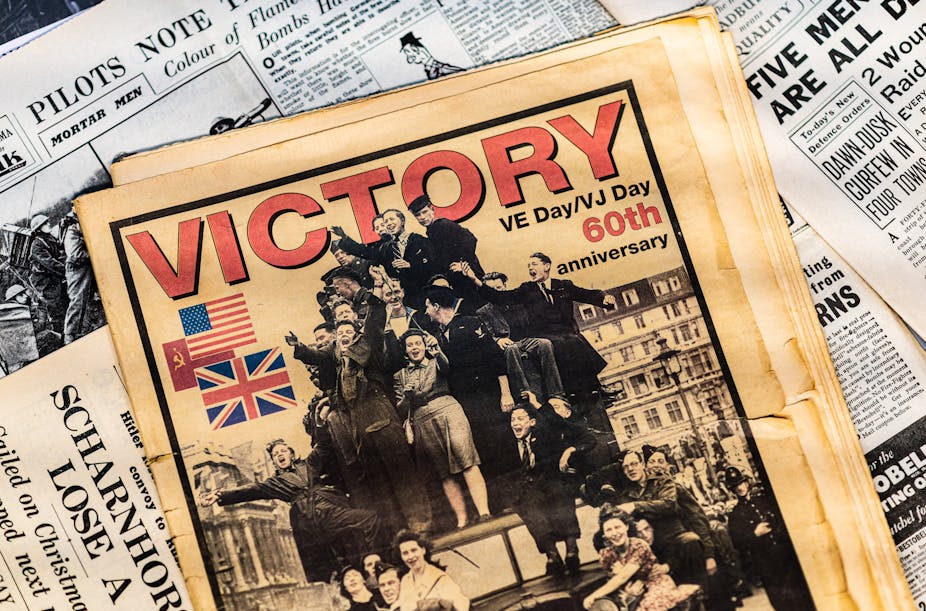During the second world war, millions of people arrived in Britain from all over the world, including occupied Europe. They kept essential industries going as war workers, served in the armed forces, worked at the BBC and nursed the sick. Britain’s war effort was multinational and multiracial – just like the effort to save people’s lives and keep essential work going during the coronavirus pandemic.
As I discovered during my research, the migrants and minorities involved in this effort were celebrated in the British wartime media. But when the war was over, the focus shifted to a national story – to the war fought by the British: their courage and resolve, their finest hour, their victory. The presence of Americans in Britain is widely known, but not the bigger picture of large-scale wartime movements to Britain from all parts of the British empire and Europe.

Dunkirk is a name that resonates in British memories, but not the multinational evacuations from ports in western France in 1940 which brought Belgian, Czech, French and Polish troops to Britain, nor the multinational ships involved. Six European armies in exile were stationed in Britain from 1940: Belgian, French, Czechoslovakian, Dutch, Norwegian and Polish.
The escape of prisoners from the Stalag Luft III camp in latterday western Poland is well known from the classic movie The Great Escape. But who would guess from the movie that the 50 airmen murdered by the Gestapo after their recapture included people from eight European countries and four nations of the British empire. Before capture, most had been serving with the RAF. One of them, Porokuru Pohe, was the first Maori in the force.

In 1939, when he applied to join the Royal New Zealand Air Force, he was asked whether he was “of pure European descent” and wrote no but enlisted later after the rule was suspended. Who now remembers that, when the war began, British subjects who did not fit this racial category were barred from service in the armed forces in Britain? Or that this rule applied across the British commonwealth – in Australia and Canada as well as in New Zealand.
During the coronavirus pandemic, the multiethnic, multinational, multiracial NHS has been very evident. So too all the other people applauded during the weekly clapping ceremony – including those who empty dustbins, work on public transport, deliver post, food and other goods or work in social and domiciliary care. This is for many a rare, joyful moment – coming together to clap, bang saucepans, whistle and whoop, creating a clamorous cacophony.
Many of those applauded, who risk their lives, are on minimum wages or zero-hour contracts. Are people who oppose immigration aware that they are clapping immigrants and their descendants? It is surely the first time in Britain that their work has been celebrated with whoops and cheers.
Thank you and goodbye
If the second world war is anything to go by, these celebrations will not last long. Already, in wartime, the government had made plans for black troops and war workers from the empire to be demobbed back home so that they did not settle in Britain when the war was over.
Post-war government planning included the deportation of Chinese seamen who had served in the wartime merchant navy. In 1946, 1362 Chinese seamen were duly repatriated. Most British-born wives, partners and children of Chinese seamen who were repatriated and deported never saw them again.

Many who stayed on, or returned to Britain, remember a change of climate in the aftermath of war – one that was more hostile and in which their wartime contributions were forgotten. Poles fought in the Battle of Britain but when the war was over, walls near Polish Air Force stations were daubed with “Poles Go Home” and “England for the English”.
Renee Webb, who served as an airman – first in Jamaica and then in Britain – remembers:
I was terribly concerned at that time that people should have forgotten so easily … I mean of the many questions that were asked of me, one of the main ones was: ‘When are you going back?‘
In the 21st century, under the “hostile environment” policy, many men and women from the Caribbean were told by the UK government to go back. Some were sacked from jobs in the NHS. Others who were detained, threatened with deportation, or charged for NHS treatment had arrived in Britain as children to join mothers who were working as NHS nurses.
The British Medical Association recently reported that 64% of Black, Asian and ethnic minority (BAME) doctors have felt pressured to work with inadequate personal protective equipment compared to 33% of white doctors. One of the reasons why so many BAME people working in the NHS have died during the coronavirus crisis may be a fear of losing jobs, and being reluctant to speak out about their lack of protective equipment as a result.
How historians will write about coronavirus times is a question that is sometimes raised. Will this history be written and remembered as a multinational, multi-ethnic, multiracial effort to save lives in Britain?

